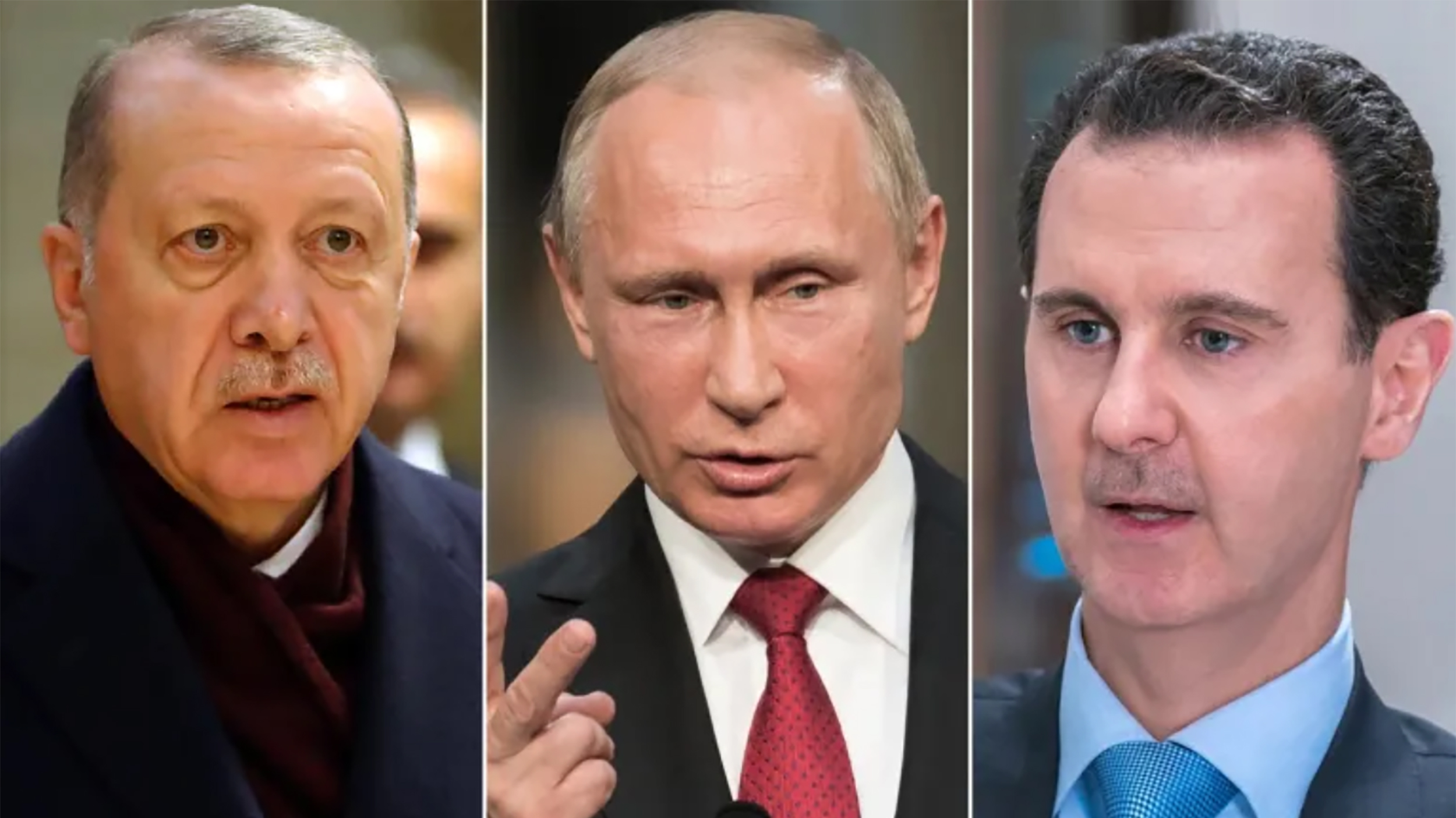
Turkish President Recep Tayyip Erdogan caused a stir in July by inviting Syrian President Bashar al-Assad to meet to discuss the restoration of Turkish-Syrian relations. While Assad welcomed the gesture, he stressed that a clear framework was needed and that any presidential summit should be aimed at resolving “the crux of the problem”—namely, Turkey’s occupation of Syrian territory.
Lacking any unequivocal official statement about what Ankara hopes to achieve by normalising relations with Damascus, we must therefore read its efforts through the lens of Turkish national security and domestic politics.
It seems clear that Turkey will not withdraw its forces from northern Syria, regardless of progress on reconciliation, as long as the Syrian regime is unable to control its borders and deal with perceived threats to Turkish security. Ankara’s goal is thus to legitimise, and perhaps even expand, its presence in northern Syria by confirming a 1998 agreement that allows it to pursue designated terrorists into Syria up to a depth of five kilometres. This would also better enable it to repatriate as many Syrian refugees in Turkey as possible, which itself is undoubtedly a chief aim given that the refugee issue has become an effective wedge issue for the Turkish opposition and a source of social tension in some parts of the country.
Another important goal for Turkey relates to the status of areas in eastern and north-eastern Syria controlled by the US-backed Kurdish People’s Protection Units (YPG) and the Syrian Democratic Forces, which Ankara views as an arm of the proscribed Kurdistan Workers’ Party (PKK). Turkish security services believe that an understanding with the Assad regime could lead to joint Syrian-Turkish action to extend the regime’s control over YPG-controlled areas.
The objectives of the Syrian regime are clearer and more concrete, if more difficult to attain. In short, Damascus wants to set relations back to the pre-2011 status quo, which would entail a complete withdrawal of Turkish forces from northern Syria and Ankara’s abandonment of Syrian opposition forces. Its willingness to cooperate with Ankara to contain the YPG will likely be conditional on the Turkish response to these demands. Yet, Turkey is unlikely to desert the Syrian opposition, which guarantees its foothold in northern Syria. In fact, it will most certainly continue to urge the Assad regime to pursue political reform and national reconciliation.
The objectives and needs of the regional and international powers involved in Syria—primarily Russia, Iran and the United States—are equally conflicting. Russia has the biggest stake in Turkish-Syrian reconciliation. Alleviating the burden of its support for the Assad regime would allow a strategic reconfiguration, which in turn would permit it to devote more attention to the grinding war in Ukraine and the large-scale confrontation with the West.
But Iran, an equally influential regime ally in Syria, is unlikely to take a similar stance on Turkish-Syrian reconciliation. Iran is engaged in a multi-front competition with Turkey in the Middle East and undoubtedly views a project that would give Turkey more pull in Syria with great concern.
While the United States is a less active party in the Syrian crisis, it is not marginal. In providing significant military support and political cover to the YPG, it maintains a hand in Syria’s future and the wider region and is therefore openly opposed to any rapprochement that threatens to weaken the YPG and thus its own position.
The path to Turkish-Syrian normalisation is thus a rocky one. How, for example, could Turkey be persuaded to withdraw its forces from positions on the Syrian side of the border while the Assad regime can control barely 40 percent of Syria’s territory? Assad will also likely not provide the necessary assistance and climate for the repatriation of Syrian refugees. The truth is that the regime has neither an interest in their return, nor the capacity to absorb them.
While Russia will certainly continue to pressure Assad to meet with Erdogan—and may even be successful—such a meeting is unlikely to result in any concrete changes on the ground in Syria: no structural regime reforms, a comprehensive national amnesty, or the acceptance of Syrian opposition forces as a partner in political life. And Assad is not expected to cede his leverage with Erdogan by agreeing to cooperate with Turkey to displace YPG units without receiving something in return.
If neither country is willing to make substantive concessions on these points, it is difficult to imagine a rapprochement in the foreseeable future. Genuine reconciliation may require a fundamental change in the nature of the Syrian regime and its relationship with its people. Though not impossible, this requires more than mere promises of reconciliation with Turkey and so remains unlikely in the foreseeable future.
*This is a summary of a policy brief originally written in Arabic available here.